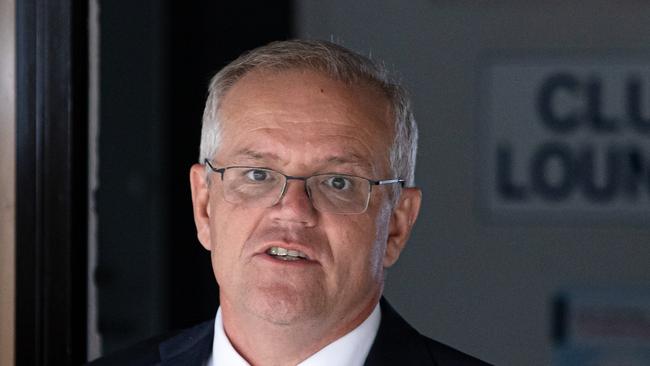
The Prime Minister’s got no choice and all he can do is turn an economic weakness into a political strength.
Morrison and Josh Frydenberg have wanted the economy to be the central political issue for months and to be the heart of the 2022 election campaign as they showcased one of the best pandemic recoveries in the world.
But they didn’t want inflation at the highest in 20 years and the first interest rate rise in more than 10 years to be the reason for the centrality of economic management.
Now they have to appeal to voters to understand the situation and convince them the Coalition team is still the superior economic manager to be trusted in the tough times ahead. Well, the tough times are already here.
Morrison has to argue that he’s still better qualified than Anthony Albanese to deal with a future of rising inflation pushing up living costs, a lift in mortgage payments, record national debt and a decade of deficits. Morrison also has to argue that it is external elements such as the two-year global pandemic, disrupted global trade and markets, and the war in Europe that have delivered these bad numbers.
His political point is that, after the small-target Labor campaign launch, the Opposition Leader still has no economic plan and the ALP’s central housing policy is flawed, confused and threatened by the impact of inflation and rate rises on the housing market.
Painted into a corner by Labor’s portrayal of him as refusing to take responsibility Morrison didn’t say rising interest rates were not his fault but argued the Australian public “know what is going on” and many had sandbagged themselves against a rate hike.
“Australians know that there are pressures on interest rates,” he said. The PM said a rate rise was “about Australians themselves and the decisions they are making and understanding the pressures on the economy and who they think is going to be better able to manage those pressures into the future”.
That’s the pitch: it just got a whole lot harder to sell.




Scott Morrison is putting the best gloss he can on the expected interest rate rise.